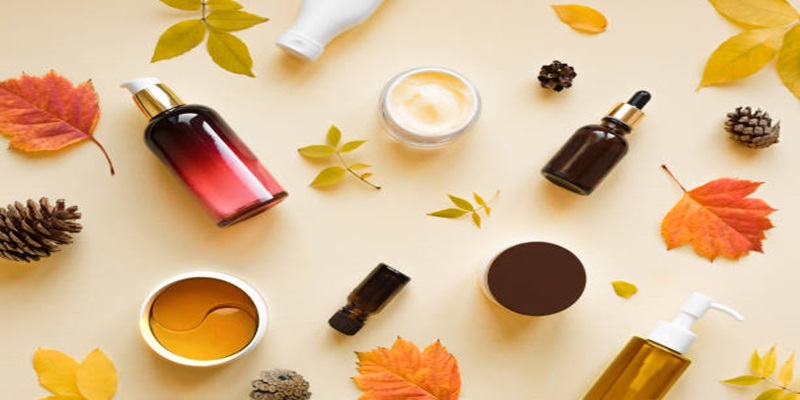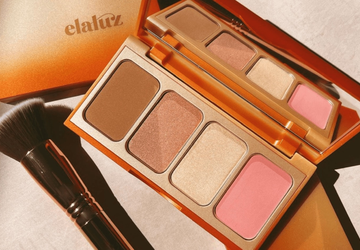Seasonal Skincare Routines: Year-Round Skincare Tips For Healthier Skin
Do you want to know the secret behind those people with unique skin all year round? It is their skincare routine! While most of us battle dry patches in winter and oil slicks in summer, some folks seem to maintain that perfect glow no matter what.
Their secret isn't expensive products or magical genes. They've mastered the art of seasonal skincare shifts, and we're about to spill all their tricks.
By the end of this read, your skincare game will never remain the same again (we mean that in a good way)!

Understanding The Skin’s Seasonal Skincare Routines
Your skin is incredibly dynamic, constantly adapting to the world around it. Just like a delicate instrument, it responds to every environmental change.
Temperature swings, humidity levels, and air quality all affect this daily routine. But many people get it wrong: using the same skincare routine year-round is like wearing a winter coat in summer.
Your skin needs different care as the seasons change. Are you ready to learn how to speak your skin's language in every season?
Winter: Skincare Secrets
Winter brings harsh winds and dry indoor heating. Your skin needs extra moisture during these cold months. Start with a creamy cleanser that won't strip your skin.
Choose one with ceramides or hyaluronic acid to maintain your skin barrier. After washing, follow up with a rich moisturizer, ideally while your skin is still damp. This helps trap that essential moisture.
Face oils become your best friend during winter months. Apply them as your final evening step to seal in all the goodness. Overnight masks twice a week can provide deep hydration.
Take your sunscreen, even on cloudy days. Winter sun reflecting off snow can cause severe damage.
Indoor heating can severely dry your skin. Consider using a humidifier in your bedroom. Keep a facial mist handy for quick hydration boosts throughout the day.
Spring: Skincare Revival
Spring skincare routines require gentle exfoliation to remove winter's dry skin buildup. Start with a mild enzyme exfoliator twice a week. Be careful not to overdo it, as your skin will still be sensitive from winter.
Switch to a lighter moisturizer as humidity levels rise. Look for one with peptides to boost collagen production.
Vitamin C serum becomes crucial in spring. It helps brighten your complexion and fight damage from increasing sun exposure. Apply it in the morning under your sunscreen.
Consider adding retinol to your evening routine for cell turnover. Start slowly, using it just twice a week.
Spring allergies can make skin sensitive. Keep your routine simple during high pollen days. Keep some calming products like aloe vera gel or Centella Asiatica serums on hand for irritated skin.
Summer: Skin Protection
Skincare routines in Summer mean more sun exposure and sweat. Choose a light, oil-free cleanser to prevent clogged pores. You can double cleanse later to remove impurities and sweat buildup.
Use water-based moisturizers that won't feel heavy. Gel formulations work great for most skin types.
Apply broad-spectrum sunscreen every morning without fail. Look for lightweight, non-comedogenic formulas with at least SPF 30. Reapply every two hours when outdoors. Keep a powder sunscreen in your bag for easy reapplication over makeup.
Antioxidants become extra important in summer. Green tea and niacinamide serums can help fight free radical damage from sun exposure. Consider keeping your products in the fridge for a cooling effect.

Fall: Skin Recovery
Fall is the perfect time to repair summer sun damage. Add antioxidants to your skin-repair routine. Products with vitamin E and niacinamide can help fade dark spots.
Return to a slightly richer moisturizer. Look for formulas with ceramides to strengthen your skin barrier.
Consider incorporating chemical exfoliants to remove dead skin cells. AHA products can help fade summer pigmentation. Start using them gradually, once or twice a week. Pay attention to any sensitivity as your skin adjusts.
Fall is ideal for starting more intensive treatments. Consider adding peptide serums for collagen production. If you're new to retinol, fall's moderate weather is a good time to begin.
Essential Products For Skin Care Routines Every Season
Your bathroom cabinet can be a partial overhaul each season. Keep these year-round basics:
A gentle cleanser for daily use
A good moisturizer you can layer as needed
Sunscreen for daily protection
Treatment products for your specific concerns
Only switch some of your products at a time. Change one product every two weeks and observe how your skin responds. Keep a simple routine when travelling between different climates.
Start Your Seasonal Skincare Routine Today
Now that you have your seasonal skincare routine roadmap, it's time to take action. Your skin is like a dynamic canvas that needs your attention.
Begin by assessing your current routine. What's working? What isn't? Take notes about how your skin feels and act accordingly.
Refrain from buying all new products. You can often adapt your current routine by changing how you use your products. Layer them differently, adjust the amount, or change when you apply them.
The most important thing is to be consistent with your chosen routine while remaining flexible enough to adapt to your skin's daily needs.
This first step is your path to gorgeous year-round skin. Please take what you've learned here and put it into practice. Your skin will thank you with the healthy, radiant glow you've always wanted.
Frequently Asked Questions
Q1: How often should I change my skincare routine?
Ans: Check your routine every three months as seasons change. Make minor adjustments based on how your skin feels.
Q2: Do I need different products for different seasons?
Ans: You don't need completely different products. First, focus on adjusting the amount and layering of your current products.
Q3: What's the most essential skincare step that shouldn't change with seasons?
Ans: Sunscreen remains crucial year-round. UV rays affect your skin even on cloudy winter days.







